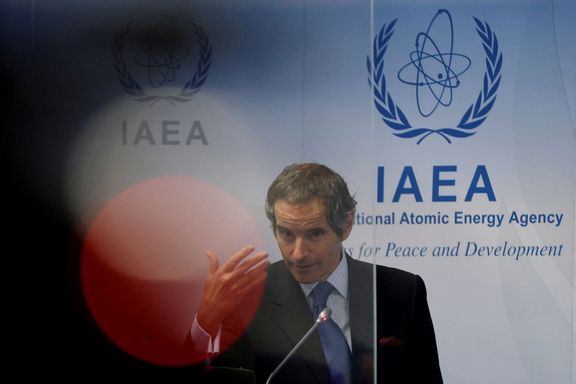UN Inspector Warns Of Possible ‘Gaps’ In Iran Nuclear Program

Rafael Grossi, the UN nuclear agency’s chief, has told Associated Press Tuesday that his agency’s picture of the Iranian atomic program was becoming “blurred.”

Rafael Grossi, the UN nuclear agency’s chief, has told Associated Press Tuesday that his agency’s picture of the Iranian atomic program was becoming “blurred.”
Speaking in Abu Dhabi, Grossi, head of the International Atomic Energy Agency (IAEA), said the agency faced a special problem with restricted access to the Karaj manufacturing plant, which was hit by a drone strike in June.
The IAEA chief said this would remain challenging even if better access were restored. “When we start to put that jigsaw puzzle together again there might be gaps,” he explained. Karaj’s role in producing “parts for centrifuges, radars, tubes,” Grossi continued, was “essential for the rest of the process, for the enrichment itself.”
Diminishing access
Grossi has argued for some time that Iran has backtracked over Karaj since he reached an arrangement in Tehran September over agency inspectors’ access to service monitoring equipment, including cameras.
September was the latest in temporary IAEA-Iran understandings since Tehran decided early in 2021 to limit inspections more or less to those required under the Nuclear Non-Proliferation agreement. Iran has justified limiting access to Karaj in terms of a security review following the drone strike, which was widely attributed to Israel.
The IAEA chief’s remarks to AP came as Iran’s talks with world powers continued in Vienna with the aim of reviving the lapsed 2015 nuclear deal, the JCPOA (Joint Comprehensive Plan of Action).
While the IAEA has no direct role in the talks, it would have responsibility for monitoring the JCPOA once revived. In the meantime, the agency is the main source of information on Iran’s nuclear program, both from its inspectors and as the conduit for direct Iranian reports.
Grossi told AP that the IAEA’s ability was diminishing to provide comprehensive information, including over the manufacture at Karaj of centrifuges, the devices used to enrich uranium.
Iran’s use of more advanced centrifuges than those permitted under the JCPOA has emerged as a bone of contention in talks, as more advanced models allow quicker and more efficient enrichment of uranium. Mikhail Ulyanov, Russia’s representative in the Vienna talks and its IAEA ambassador, said Monday that centrifuges were an “acute issue” in negotiations.
Grossi told AP that the agency needed a clear idea of centrifuges production. While this is not required as part of Iran’s ‘safeguards commitments’ under the NPT, which are limited to direct nuclear work, it was possible under the JCPOA.
‘An illusion’
“If the international community through us, through the IAEA,” Grossi told AP, “is not seeing clearly how many centrifuges, or what is the capacity that they may have, then…what you have is a very blurred image…an illusion of the real image, but not the real image…It sounds technical and boring, but it's very important."
Grossi noted that his contacts since September had shown the new government under President Ebrahim Raisi (Raeesi) had “a different take from the previous administration.” As well as “strong views about the interactions that Iran has been having with its counterparts within the JCPOA, and beyond,” Grossi said, “the president himself and the people around him have been saying very clearly that they have views about the nuclear program.”
Grossi said he wanted to tell Iran there was "no way around" the IAEA and its inspectors if Iran wanted to be "a respected country in the community of nations." He stressed: "We have to work together.”